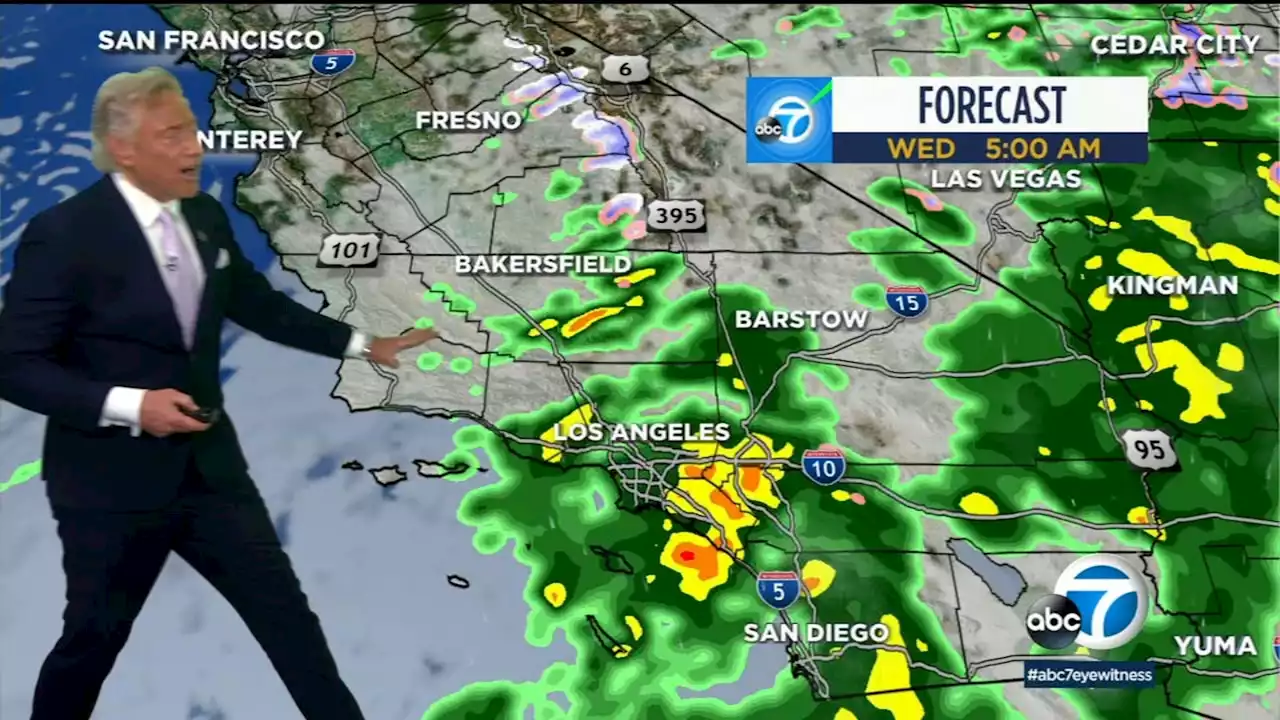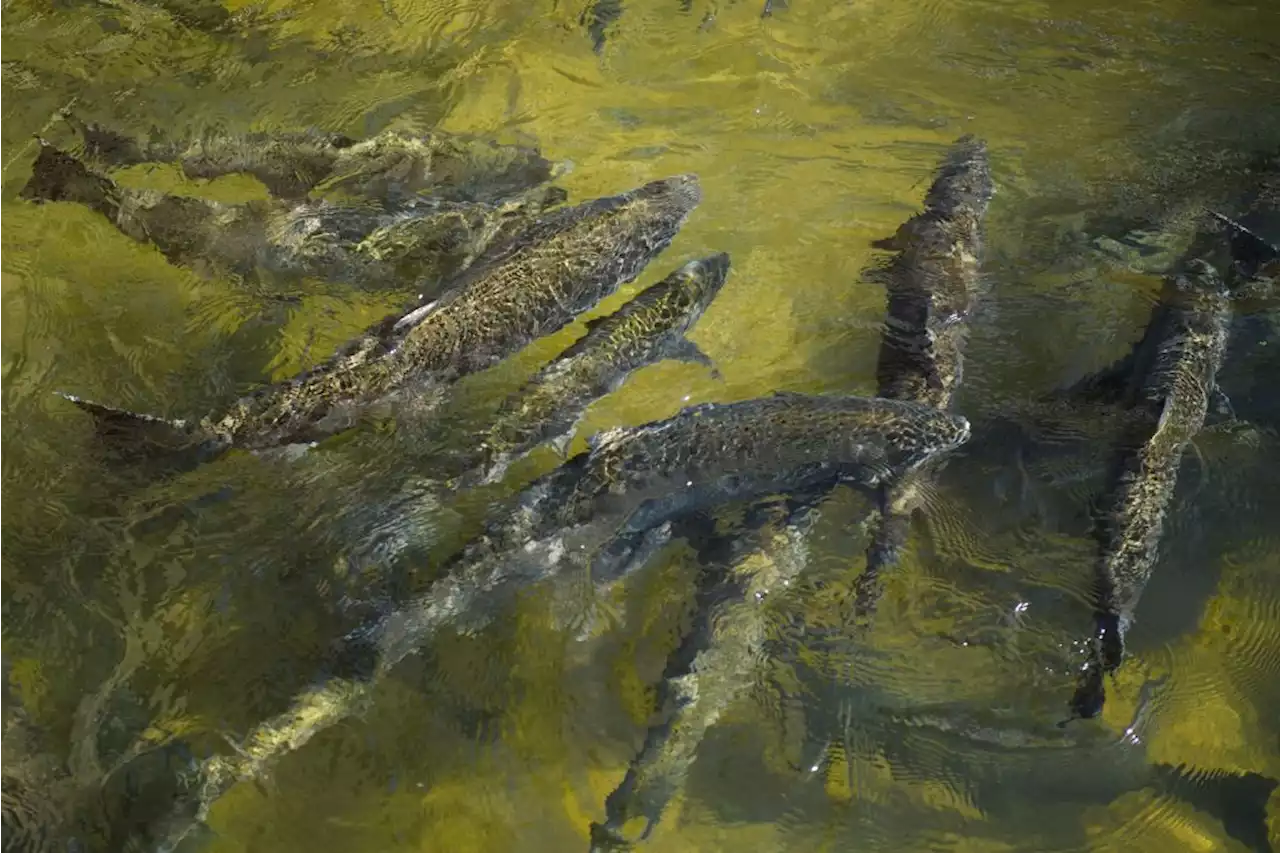As salmon populations have shrunk, California’s fishing fleet has shrunk, too. Nearly 5,000 commercial boats pursued California’s Chinook in the early 1980s. Now only 464 active boats are fis…
Most summer mornings at first light, Jared Davis is a few miles west of the Golden Gate Bridge, motoring his charter fishing boat Salty Lady over the Pacific Ocean. His eyes sweep the horizon, looking for diving birds, but mostly he watches the screen of his dashboard fish-finder for schools of anchovies — a sure sign that salmon are near. When the signs look good, he throttles down to trolling speed and tells his customers to let out their lines.
“Our customers want salmon,” he said, adding that last year, his customers caught roughly 2,000 Chinook. What’s ailing the fish, scientists and state officials say, is a variety of factors, primarily in the rivers where salmon spawn. Large volumes of water are diverted for use by farms and cities. Combined with drought, this causes low flows and high water temperatures, which can kill salmon eggs and young fish. Vast tracts of floodplains and wetlands, where small fish can find food and refuge, have also been lost to development and flood control projects.
“We don’t have the abundance to support any harvest,” said Sarah Bates, of Oakland, who has fished commercially in coastal waters for 15 years. Still, a substantial salmon industry remains. A 2010 analysis estimated its worth at $344 million in direct fish sales and related economic activity. Cameron Speir, a U.S. National Marine Fisheries Service economist, said with inflation, that would bring the 2022 value to an estimated $460 million, although no formal estimates have been made.
Eric Stockwell, a naturalist and ocean kayak fishing guide based in Humboldt County, said he wants a season closure even though it will put him out of work. He called it long overdue, given the recurring poor returns in the Sacramento and Klamath rivers. Tribes set their own catch limits, but they tend to reflect the population estimates of the Pacific Fishery Management Council, according to Barry McCovey Jr., who directs the Yurok’s fisheries program.
“Salmon were pretty abundant then,” McCovey said. Teaching his own children to fish is more challenging. “It’s a lot harder to catch salmon now,” he said. Now the salmon are left dependent on human intervention: Gravel is dumped in rivers to replicate mountain spawning grounds, cold water is released from the depths of reservoirs and millions of baby salmon are produced in hatcheries to supplement failing wild runs. Often young fish are trucked to San Francisco Bay for release, which helps them escape the dangerous water pumps of the Delta.
For instance, a dramatic spike in 2002 that reached almost 900,000 fall-run Chinook in the Central Valley followed a period of exceptionally wet years in the late 1990s.
United States Latest News, United States Headlines
Similar News:You can also read news stories similar to this one that we have collected from other news sources.
 Another atmospheric river pounds California; nearly 27,000 to evacuate statewideThe latest powerful atmospheric river to drench California put nearly 27,000 people under evacuation orders due to flooding and landslide risks.
Another atmospheric river pounds California; nearly 27,000 to evacuate statewideThe latest powerful atmospheric river to drench California put nearly 27,000 people under evacuation orders due to flooding and landslide risks.
Read more »
 LA, Long Beach sign pledge supporting equal pay for womenCalifornia First Partner Jennifer Siebel Newsom launched the California Equal Pay Pledge in 2019.
LA, Long Beach sign pledge supporting equal pay for womenCalifornia First Partner Jennifer Siebel Newsom launched the California Equal Pay Pledge in 2019.
Read more »
 2 women charged with stealing nearly $1K in merchandise from Old Navy in Oak BrookTwo women have been charged with stealing nearly $1,000 worth of merchandise last week from an Old Navy store in west suburban Oak Brook.
2 women charged with stealing nearly $1K in merchandise from Old Navy in Oak BrookTwo women have been charged with stealing nearly $1,000 worth of merchandise last week from an Old Navy store in west suburban Oak Brook.
Read more »
 Boeing expected to sell nearly 80 787 planes to Saudi airlines -sourceBoeing Co is expected to sell nearly 80 787 Dreamliner airplanes to two Saudi Arabian airlines, a source briefed on the matter said on Monday.
Boeing expected to sell nearly 80 787 planes to Saudi airlines -sourceBoeing Co is expected to sell nearly 80 787 Dreamliner airplanes to two Saudi Arabian airlines, a source briefed on the matter said on Monday.
Read more »
 Authorities renew call for missing woman with autism after searching for nearly 2 weeksAuthorities said they have yet to find a lead in their investigation in New Caney but are aware Amanda Cutrata left home without any of her personal belongings.
Authorities renew call for missing woman with autism after searching for nearly 2 weeksAuthorities said they have yet to find a lead in their investigation in New Caney but are aware Amanda Cutrata left home without any of her personal belongings.
Read more »
 Hate crimes rose 12% in 2021 — nearly two-thirds were race-based: FBIHate crimes in the US increased by 11.6 percent in 2021 – higher than the FBI had originally reported – as more than half of such incidents were race-based, the agency announced Monday. Police depa…
Hate crimes rose 12% in 2021 — nearly two-thirds were race-based: FBIHate crimes in the US increased by 11.6 percent in 2021 – higher than the FBI had originally reported – as more than half of such incidents were race-based, the agency announced Monday. Police depa…
Read more »
